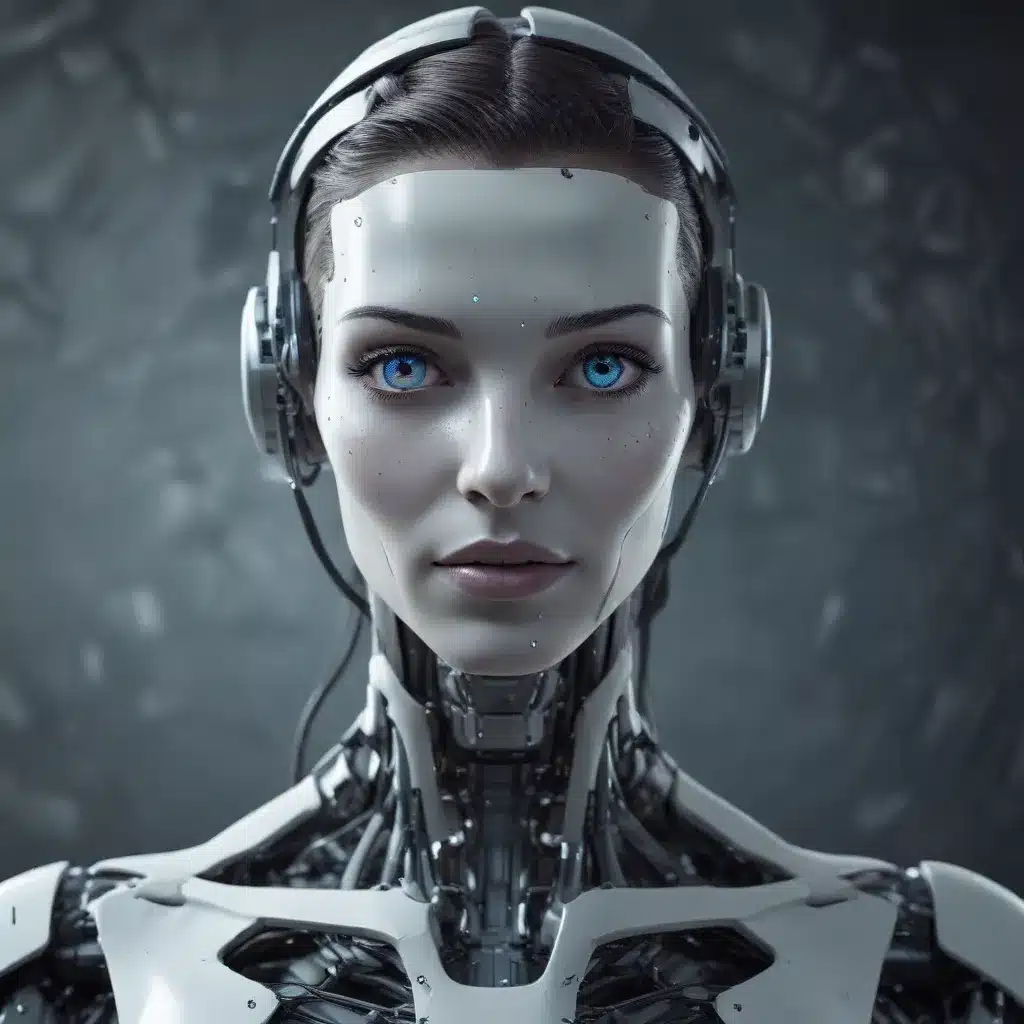
As an experienced IT professional, I’ve witnessed firsthand the transformative power of artificial intelligence (AI) in the game development industry. This cutting-edge technology has opened up unprecedented possibilities, from generating stunning concept art and level designs to crafting captivating narratives and immersive soundscapes. However, with these advancements come a host of ethical considerations that game developers and companies must grapple with to ensure the responsible and ethical use of AI.
Balancing Creativity and Automation
The integration of AI-powered tools into the game design process has the potential to streamline workflows, spark creativity, and push the boundaries of what’s possible. Generative AI models can quickly generate a multitude of visual concepts, level layouts, and character designs based on textual prompts or existing assets. This can significantly accelerate the ideation and prototyping phases, allowing designers to explore a wider range of ideas and solutions.
However, the reliance on AI-generated content also raises concerns about the impact on human creativity and originality. There is a valid fear that over-reliance on AI tools could stifle the unique artistic vision and the human touch that makes game experiences truly special. As Ethan Mollick rightly points out, “It’s not just about accelerating good ideas, it’s also about accelerating bad ideas.” The key is to strike a balance, leveraging AI for efficiency while preserving the human element in game design.
Navigating the Legal Landscape
One of the most pressing ethical challenges surrounding AI in game development is the issue of intellectual property rights. Who owns the copyright to AI-generated content? Can AI-generated assets be protected under copyright law? These are critical questions that game designers and companies must address.
According to Hartmans Law, in most jurisdictions, the creator or the person who commissioned the AI-generated work is deemed the copyright owner. However, the specific terms of service of the AI tool used can greatly impact ownership rights. Game developers must carefully review these terms and understand the limitations and responsibilities associated with using AI-generated content.
Additionally, the concept of fair use, which allows for the limited use of copyrighted material without permission, is still evolving when it comes to AI-generated content. Designers must be mindful of the specific factors that determine fair use, such as the purpose and character of the use, the nature of the copyrighted work, the amount and substantiality of the portion used, and the effect on the potential market for the original work.
Addressing Bias and Representation
Another significant ethical concern in the use of AI for game development is the potential for bias and lack of representation. Some experts assert that AI models can inadvertently perpetuate biases present in their training data, leading to skewed or discriminatory outcomes in the generated content.
For example, an AI-powered character creation tool might generate character designs that lack diversity or reinforce stereotypical representations. Game developers must be vigilant in identifying and mitigating such biases, ensuring that their games promote inclusivity and diverse representation.
David Akinyemi, an AI Product Manager at Atlassian, emphasizes the importance of establishing accountability frameworks and clear guidelines for the use of AI-generated art assets. By fostering collaborative innovation and addressing ethical considerations, AI Product Managers can shape a future where AI enhances human well-being while upholding the values and principles that underpin a just, equitable, and responsible society.
Maintaining Transparency and Accountability
As AI becomes more sophisticated, it can become increasingly difficult to distinguish between human-created and AI-generated works. This raises concerns about transparency and accountability, particularly when it comes to the use of AI-generated content in games.
Game developers should be transparent about their use of AI, acknowledging the incorporation of AI-generated assets or content in their games and marketing materials. This not only fosters trust with their audience but also sets the stage for future consumer protection laws that may address the use of AI in creative industries.
Furthermore, game studios should develop clear guidelines and accountability frameworks for the use of AI-generated art and content. They must be prepared to take responsibility for any unintended consequences or harm caused by AI-generated elements in their games.
Preserving the Human Touch
While AI offers tremendous potential in streamlining various aspects of game development, it is crucial to maintain the human touch and the unique artistic vision that defines the gaming experience. As Hartmans Law points out, “Preserve your unique artistic vision and the human touch that makes your games special.”
Game developers should strive to leverage AI as a tool to enhance their workflow and spark creativity, but not at the expense of the human element. By striking a balance between automation and human creativity, they can harness the power of AI while preserving the authenticity and emotional resonance that captivates players.
Embracing the Future of AI in Game Development
The integration of AI in game development is an inevitable reality, and game studios that embrace this technology while navigating its ethical complexities will be well-positioned to thrive in the years to come. By staying informed, adhering to best practices, and engaging in ongoing dialogue about the implications of artificial intelligence, the game development community can unlock the full potential of this technology while fostering a vibrant and ethical future for the gaming industry.
As an IT professional, I encourage game developers and companies to explore the IT Fix blog for more insights and practical tips on navigating the ever-evolving landscape of technology, computer repair, and IT solutions. By staying at the forefront of these advancements, we can collectively shape a future where innovation and ethical responsibility go hand in hand, empowering game creators to push the boundaries of creativity while upholding the values that define a responsible and inclusive gaming ecosystem.












